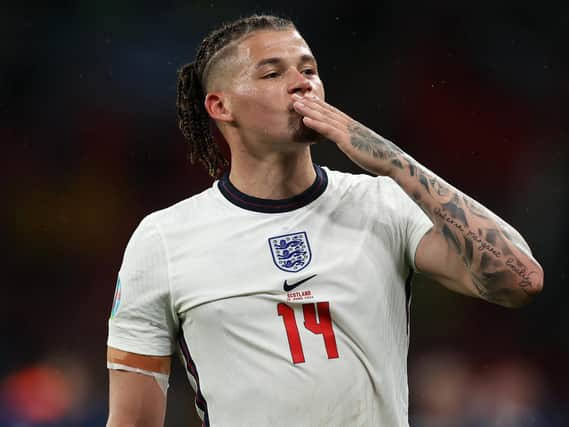Barnsley poet Ian McMillan's words on England team should be heeded - Anthony Clavane


The crushing disappointment of the Euro 2020 final defeat had been eclipsed by the shameful racist abuse meted out to three England players.
Social media was a cesspit of vileness.
It was only a brief exchange but it instantly restored my faith in art as a source of inspiration, pride and community.
Advertisement
Hide AdAdvertisement
Hide AdI had tuned into BBC Radio 4’s Front Row eager to hear the latest offering from fellow Yorkshire Post columnist Ian McMillan. Ian had been asked by the programme to write a poem about the final.
I longed for his soothing voice, his comforting tones, his amusing observations on the slings and arrows of outrageous footballing fortune.
Before we heard from The Bard of Barnsley, however, presenter John Wilson reported on the overnight defacing of a mural in south Manchester. This shocking act of vandalism – a monochrome portrait of Black England striker Marcus Rashford had been desecrated by graffiti – horrified the nation.
The good news, revealed Ed Wellard, the founder of the community street art project which commissioned the mural, was that it was being restored to its former glory.
Advertisement
Hide AdAdvertisement
Hide Ad“It really is a reminder of the power of art,” declared Wilson, “and the role that art can play in the community.” Wellard agreed, pointing out: “We can use public art as this catalyst
for positive change, for regeneration of where we live.”
Over the next few days, there was an outpouring of support as the local community came together to leave posters, cards and messages of solidarity. Poems were recited, songs were sung and the street artist Akse, who was responsible for the wonderful mural, repainted it.
“I love the spirit,” he said. “It is really overwhelming and really cool to see the community coming together”.
McMillan’s Front Row poem, by the way, reinforced this message. He said he had gone to sleep with his ideas swirling, leaving the first draft of the poem – entitled This Sporting Life – to “marinate”. He had even woken up in the middle of the night and scribbled down some words – but couldn’t read them in the morning.
Advertisement
Hide AdAdvertisement
Hide AdThe poem implied that Rashford and the other brave penalty-takers were, in fact, national heroes – and compared them to the Greek mythological character Icarus.
He explained in another interview: “They fly too close to the sun, and then we catch them. I tried to make it into a collective act of transcendence.”
This emphasis on empathy rather than demonisation was the theme of another Radio 4 interview, given by another great northern poet, Lemn Sissay. Born to an Ethiopian mother in Wigan, Lemn has become one of the country’s best-loved voices.
He has performed to thousands of football fans at an FA Cup Final and was the official poet at the 2012 London Olympics.
Advertisement
Hide AdAdvertisement
Hide Ad“Haters gonna hate,” he intoned. “That’s how it’s gonna be.” He read a section of Rudyard Kipling’s famous poem If – the bit about keeping your head when all about you are losing theirs.
During Covid, we have been witnessing a street art revolution in our public spaces. Since the first lockdown, last March, towns and cities up and down the country have embraced artworks which brighten up their neighbourhoods.
Wakefield has its own local Banksy, Rachel List. The Bielsa the Redeemer mural in Leeds, painted by Nicolas Dixon, shows the Leeds United football coach Marcelo Bielsa in the pose of the Christ The Redeemer statue.
And Aske also crossed the Pennines to create a magnificent Kalvin Phillips mural in Leeds, alongside the pioneering South African Albert Johanneson and former Whites captain Lucas Radebe.
Advertisement
Hide AdAdvertisement
Hide AdPhillips, one of the stars of Euro 2020, is not just an England team-mate of Rashford’s, but an admirer of his work on child food poverty. In the wake of the racist abuse, he tweeted: “Nothing but love and respect for my brothers for their courage.”
The national men’s team represented an exciting, modern, progressive version of Englishness. Their positivity, vibrancy and diversity has enabled hope to triumph over hate.
As the great McMillan writes in his new poem: “Those who carry dreams for us should be carried high/through the cheering streets.”